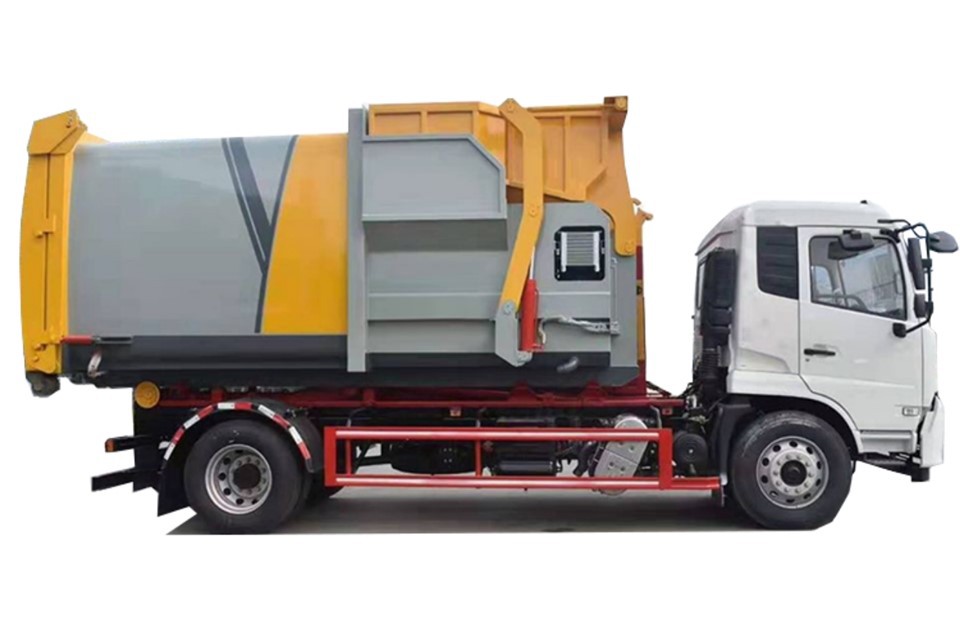Dump trucks play a crucial role in waste management, making them essential for collecting and transporting garbage. In this article, we’ll explore everything there is to know about dump truck garbage, from operational principles and types to practical tips for efficient waste management.
What is a Dump Truck?
A dump truck is a heavy-duty vehicle designed for transporting large volumes of materials, primarily for construction and waste management purposes. Unlike regular trucks, dump trucks can unload their cargo by tilting the bed, making them ideal for dumping loads of dirt, gravel, and garbage.
Types of Dump Trucks
Dump trucks come in various types, each suited for specific tasks:
- Standard Dump Truck: Most common type used for general purposes.
- Triaxle Dump Truck: Features three axles for increased weight capacity.
- Dump Trailer: A separate trailer that requires a towing vehicle.
- Side Dump Truck: Dumps cargo to the side instead of the rear.
- Loading Dump Truck: Comes with its own crane for loading and unloading.
The Process of Dump Truck Garbage Collection
How garbage is collected and transported by dump trucks involves several steps:
Step-by-Step Collection Process
1. Scheduling
Municipalities or waste management companies schedule regular routes for garbage pickup. This ensures that areas are serviced consistently.
2. Loading
Empty dump trucks are dispatched to designated locations. Here, waste is collected from curbside bins or dumpsters, often using a loader for efficiency.
3. Transportation
After the truck is loaded, it transports the garbage to a landfill, recycling center, or waste-to-energy facility. The route is optimized for fuel efficiency and time management.
4. Unloading
Upon arrival at the destination, the operator uses the hydraulic system to raise the bed of the truck, allowing the garbage to dump out quickly and efficiently.
Advantages of Using Dump Trucks for Garbage Collection
There are numerous advantages to utilizing dump trucks for garbage collection:
- Efficiency: Dump trucks can carry large quantities of waste at once, reducing the number of trips required.
- Versatility: They can handle different types of waste, including construction debris, household garbage, and recyclables.
- Cost-Effective: Fewer trips mean reduced fuel costs and time savings for waste management companies.
Key Considerations for Operating Dump Trucks in Waste Management
Operating dump trucks for garbage requires understanding several key considerations to ensure safety and efficiency:
1. Weight Limitations
Dump trucks have weight limits that must be adhered to in order to avoid fines and ensure safe operation on public roads. Always check local regulations regarding weight limits for solid waste.
2. Maintenance
Regular maintenance is essential for keeping dump trucks in optimal working condition. This includes checking the hydraulic systems, brakes, tires, and overall engine performance.
3. Safety Protocols
Operators must be trained in safety protocols, including wearing personal protective equipment (PPE) and following safe driving practices, especially in residential areas.
Technology in Garbage Collection
Technological advancements have transformed how dump trucks operate in garbage collection:
1. Tracking Systems
GPS tracking allows companies to monitor truck locations in real-time, helping to optimize routes and reduce fuel consumption.
2. Automated Systems
Some dump trucks are equipped with automated loading and unloading systems that reduce manual labor and enhance efficiency.
3. Smart Sensors
Modern dump trucks include sensors for weight measurement that prevent overloading, ensuring compliance with regulations.
Case Studies: Successful Implementations of Dump Truck Garbage Systems
Examining practical implementations can provide insights into the effective use of dump trucks in waste management:
Case Study 1: City of Los Angeles
The City of Los Angeles integrated a fleet of modern dump trucks equipped with GPS technology to streamline garbage collection. This innovation led to a 15% reduction in fuel consumption.
Case Study 2: New York City Waste Collection System
NYC optimizes its garbage routes using predictive analytics, which has resulted in more efficient dump truck deployments and lower operational costs.
Tips for Efficient Garbage Management with Dump Trucks
Managing garbage collection effectively using dump trucks involves several best practices:
1. Route Optimization
Utilize software or apps designed for route optimization to minimize travel time.
2. Staff Training
Regularly train staff on new technologies and safe operating procedures.
3. Community Engagement
Educate the community about waste disposal practices to reduce contamination of recycling streams and improve overall efficiency.
Environmental Impact of Dump Truck Garbage Collection
The environmental implications of using dump trucks for garbage transport are significant. Proper management and modern practices can mitigate negative impacts:
1. Reduction of Landfill Waste
By improving recycling efforts and reducing landfill waste, dump trucks can play a vital role in sustainable waste management.
2. Emission Control
Using newer, more efficient dump trucks can reduce emissions associated with garbage transport.
Cost Analysis of Dump Truck Operations
| Cost Aspect | Estimated Cost (per month) |
|---|---|
| Fuel | $2,000 |
| Maintenance | $500 |
| Labor | $4,000 |
| Insurance | $1,000 |
| Total | $7,500 |
Understanding Total Costs
Analyzing the total cost of operating dump trucks can help businesses make informed decisions regarding their waste management strategies.
Frequently Asked Questions (FAQ)
1. What kind of waste can dump trucks transport?
Dump trucks can transport a variety of waste, including construction debris, household garbage, and recyclables.
2. How often should dump trucks be serviced?
Dump trucks should undergo regular maintenance checks at least once a month or more frequently based on usage intensity.
3. Are there specific regulations for dump truck weight limits?
Yes, regulations regarding weight limits vary by location. Operators should consult local laws to ensure compliance.
4. How can technology improve dump truck efficiency?
Technologies such as GPS tracking and route optimization systems can significantly enhance operational efficiency and reduce costs.
5. What safety measures should dump truck operators take?
Operators should wear appropriate PPE, follow safe driving practices, and ensure proper training in the operation of heavy-duty vehicles.
6. What are the benefits of using dump trucks for recycling?
Dump trucks can streamline the collection of recyclable materials, helping to improve recycling rates and reduce landfill waste.





